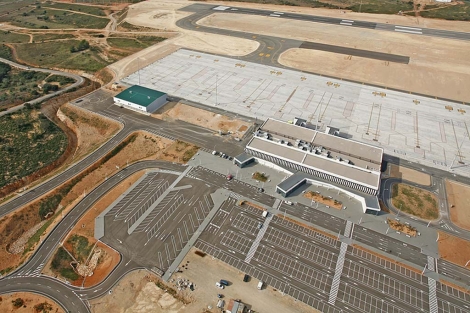Spain Feels the Housing Pain

- AFP
- Cranes erecting the Pelly tower under construction in Seville.
Spain's property bust is only getting worse. The wonder is that the country's economy and banks are still this resilient.
The Spanish government said Tuesday that housing prices remained in free-fall in the third quarter, dropping 5.5% from a year earlier, the biggest decline since 2009.
This makes Spain, in many senses, the worst case of a property bust in the developed world—the country is already deep in its third consecutive year of falling prices, with no rebounds.
Last year, the pace of decline slowed significantly, signalling some light at the end of the tunnel, but another metaphor is called for instead: that last year's respite was nothing more than a dead cat's bounce.
The good news should be the overall amount of the decline, since Spain's government says prices are only down 18%, in nominal terms, since their peak in early 2008.
But that doesn't include the effect of Spain's persistent inflation, one of the highest in the euro zone, which makes the real drop closer to 30%—Spain's government didn't provide real price data in today's release.
After earlier predictions of a short-term correction have been smashed, some analysts now say prices may keep falling for the next two years, eroding Spain's household wealth and banking balance sheets.
Meanwhile, banks are struggling to keep up with the loss in value of the collateral against €400 billion worth of loans to construction and real estate firms, an amount that remains unchanged since 2008.
For Luis Garicano, a professor of economics and strategy at the London School of Economics, this number is perhaps the most dangerous of those related to the bust, since it indicates the banking sector exposure to such loans hasn't diminished.
He estimates that a possible explanation is that banks have exchanged some non-performing loans for property that they now own, but not enough to offset the rising interest on the loans.
Many, if not most of these loans, are being rolled over to keep zombie developers in business, in the hope that the market will recover.
All the same, banks have also turned into property developers now.
Walk into any Spanish bank branch, looking for a mortgage, and you will see that is much easier to get it if you'll just take one of the many, many houses the bank acquired from a bankrupt developer. But many will say why worry? The same house will be even cheaper next month.




